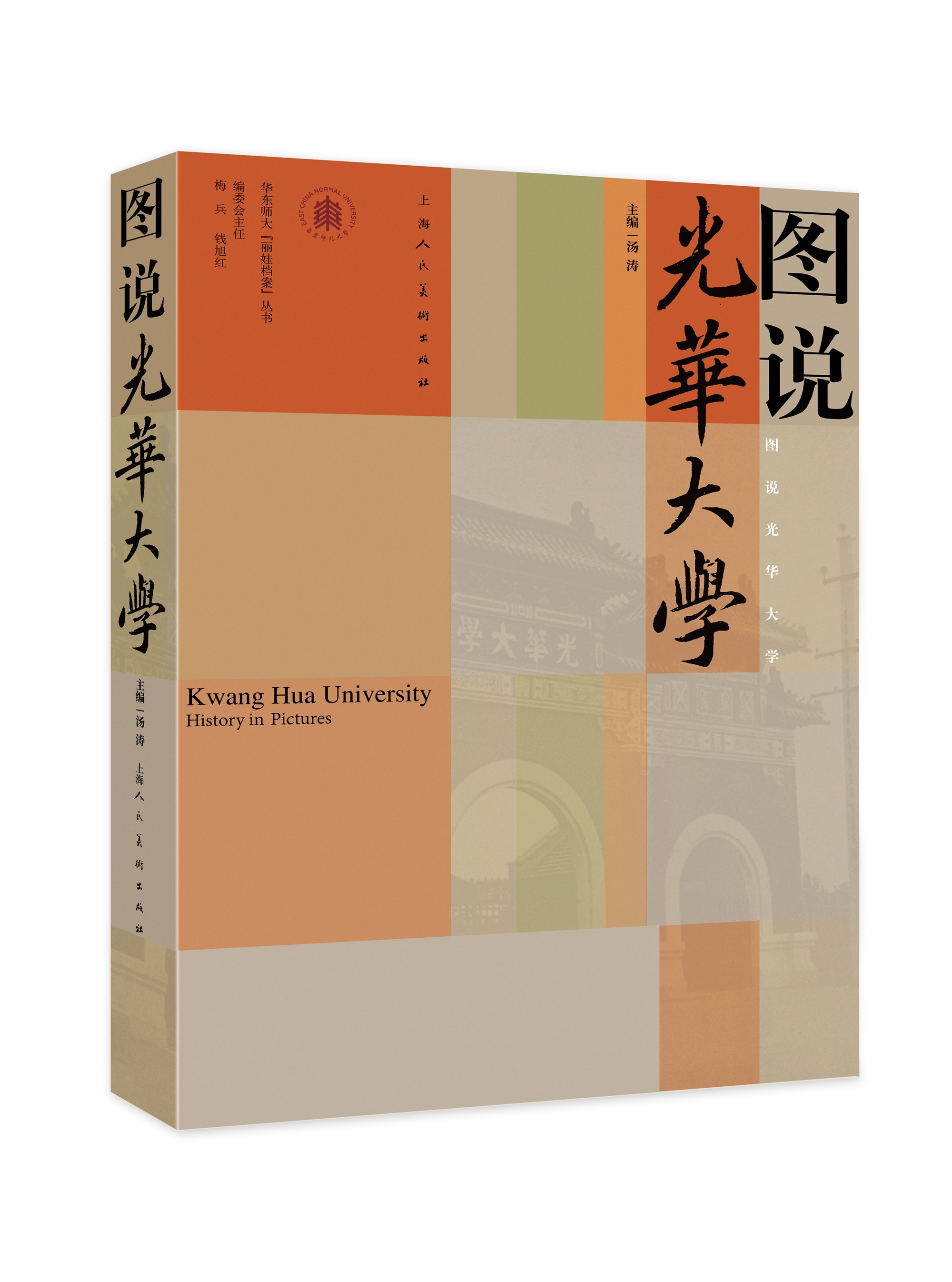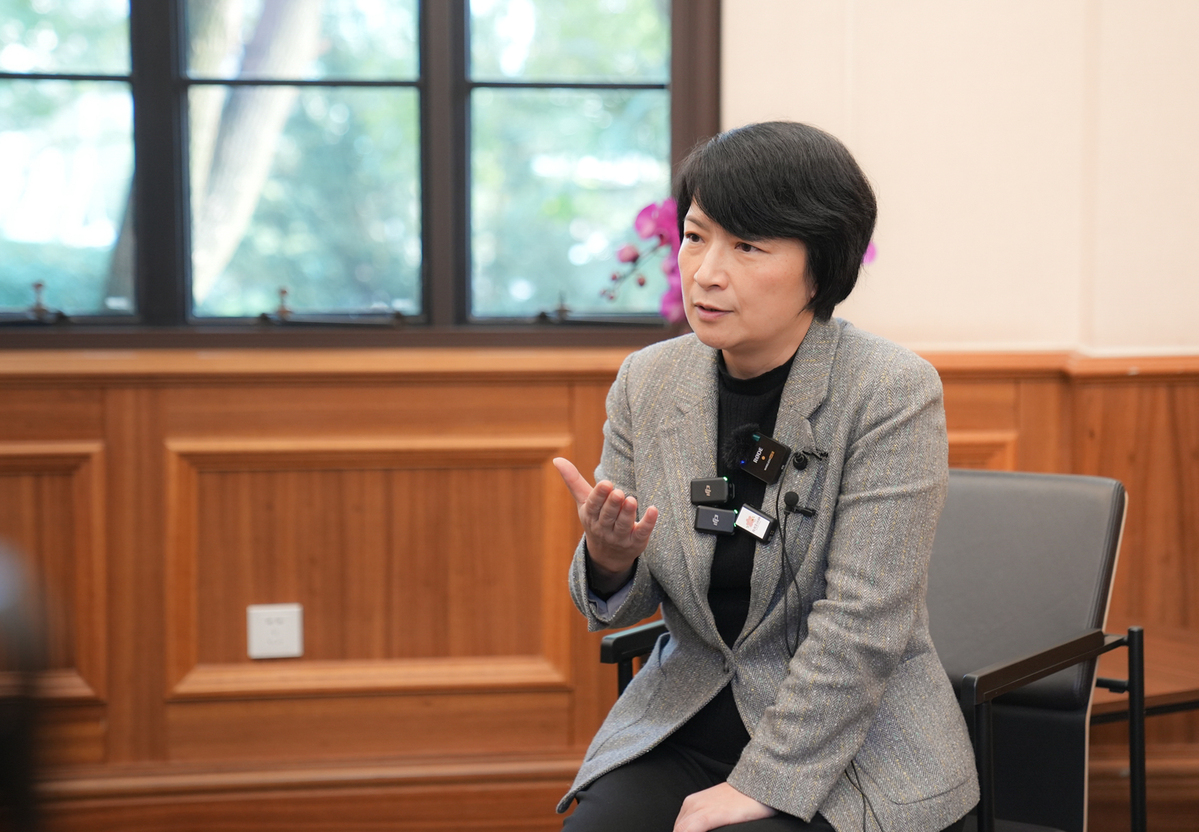If you like to sip a cup of green tea with toast or a bagel, you’re doing your blood sugar good. New research favors those who drink since it contains a metabolite called protocatechuic acid (PCA) that is good for blood sugar. A team of ECNU researchers found in their lab study that green tea contains ingredients that assist the control mechanism for remotely activating cell therapies. The team was led by Ye Haifeng with the School of Life Sciences, Shanghai Key Laboratory of Regulatory Biology, and ECNU Center for Medical Synthetic Biology.
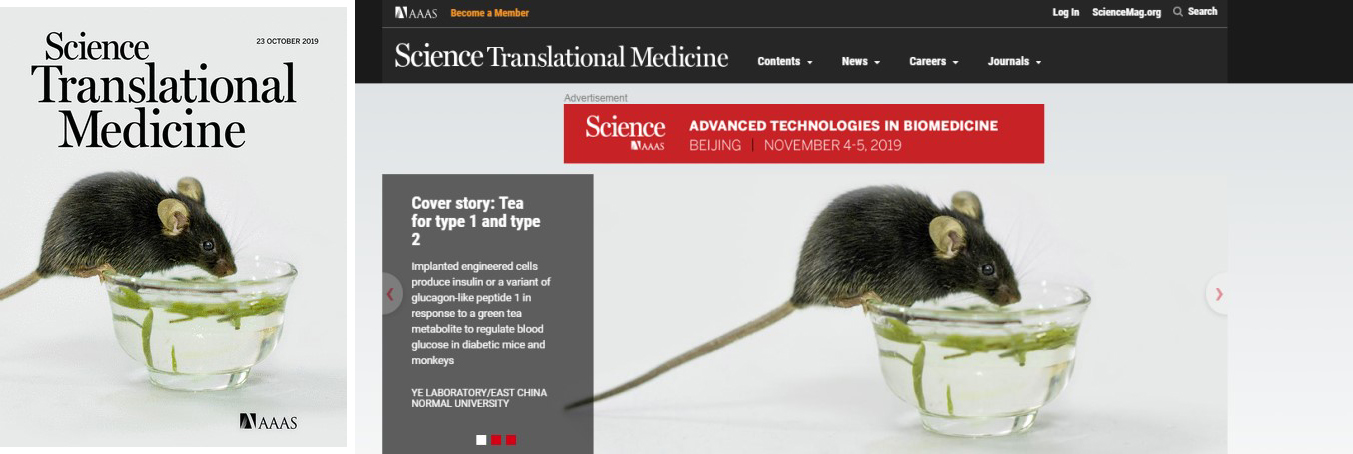
The work is published as the cover story for Science Translational Medicine.
The work was published in a paper titled “A green tea-triggered genetic control system for treating diabetes in mice and monkeys”. It also was the cover story for Science Translational Medicine on October 24.

ECNU Doctoral student Yin Jianli is the first author and Researcher Ye Haifeng corresponding author.
Advanced engineered cell therapies are an area of great promise for treatments of diseases ranging from cancer to diabetes. Since genetic control over the cells is needed for accurate results, the research was conducted in a lab setting where they found a system for gene editing that can be triggered by a compound found in green tea.
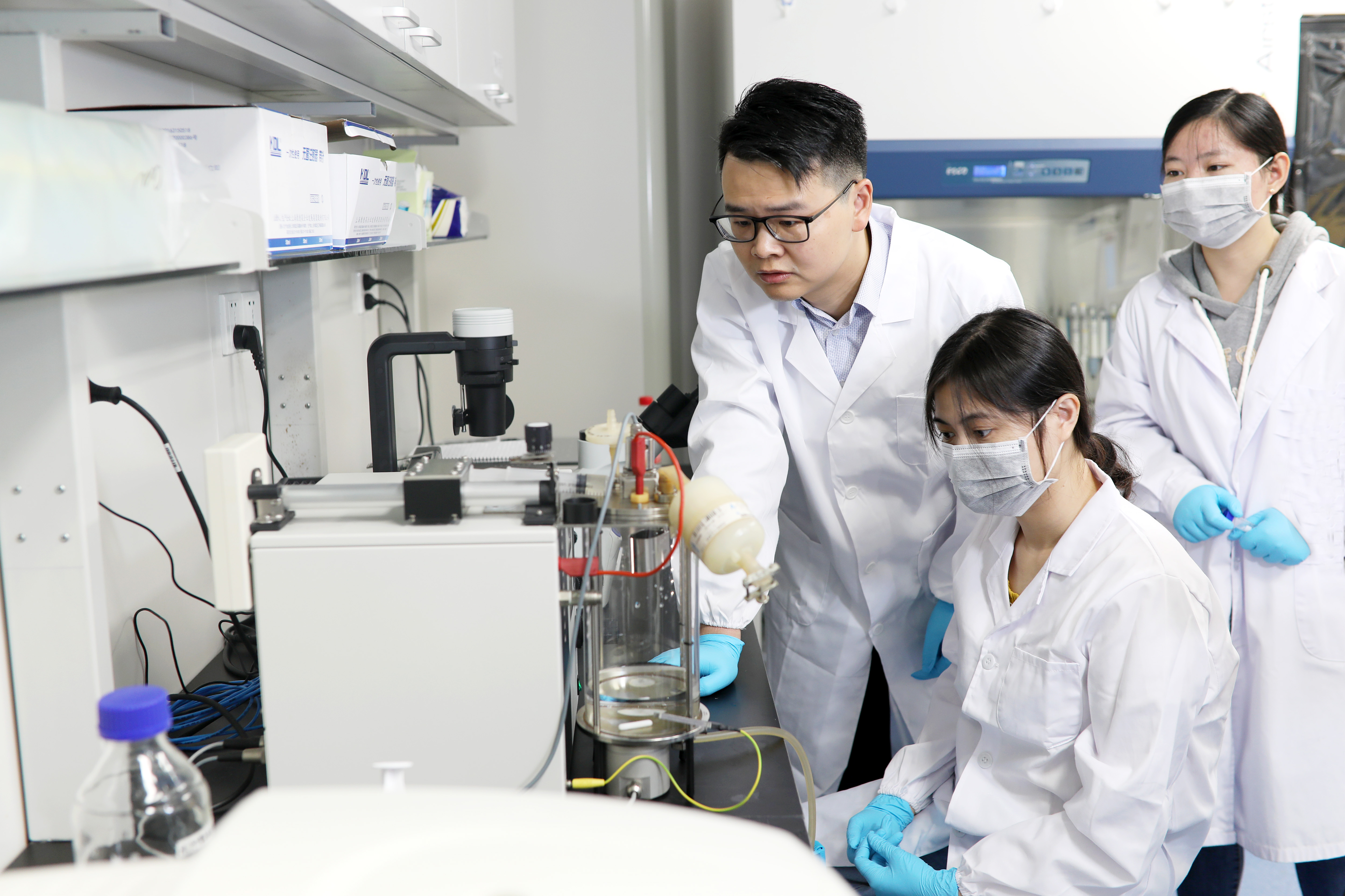
Researcher Ye Haifeng's team in the lab.
The engineered cells, which successfully treated diabetes in mice and macaque monkeys that drank green tea, could potentially be used as a remotely controlled and easy-to-follow therapy for diabetes in humans. They also found that various other applications, such as guiding CRISPR gene editing and conducting digital computations, could be tested through the same process.

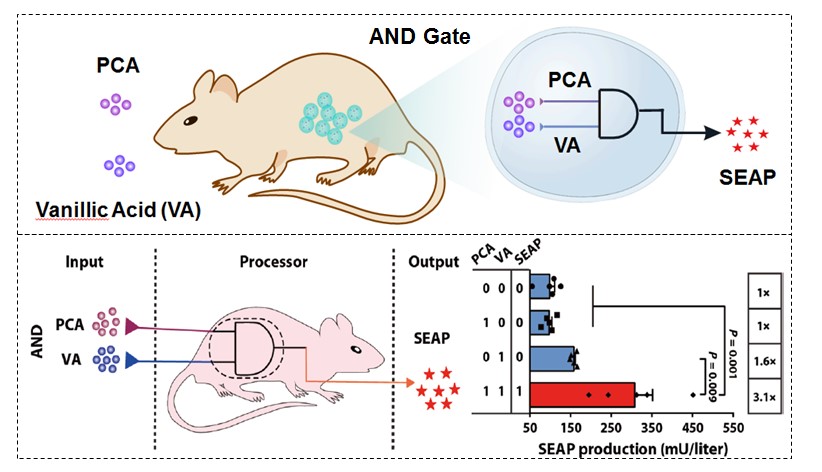
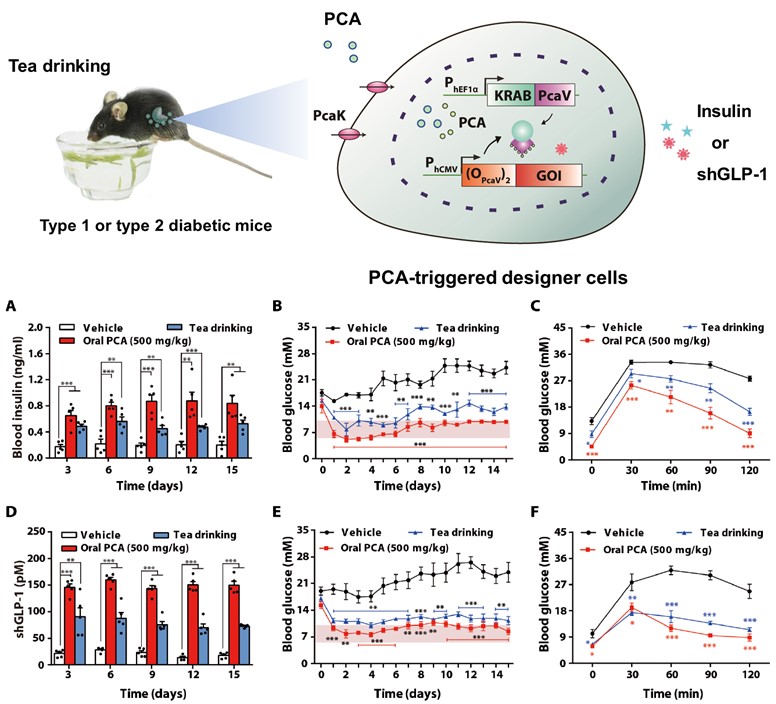

The team developed a control system by engineering cells responsive to PCA. They then constructed multiple genetic controls that could toggle a PCA-responsive cell-powered by an on/off switch-based on a transcriptional repressor from Streptomyces coelicolor to demonstrate how these technologies could be used as implantable biocomputers in live mice. The goal of this experiment was to perform complex logic computations that integrated signals from multiple food metabolites.
The research team ingested PCA regulated blood glucose through the mouth, thus triggering secretion of insulin or a short variant of human glucagon-like peptide 1 from implanted engineered cells in mice and cynomolgus monkeys--these were models for type 1 and type 2 diabetes. They observed that drinking concentrated green tea had lowered blood sugar levels due to the insulin or a short variant of human glucagon-like peptide 1.

Researcher Ye Haifeng.
The authors were most impressed with the utility of the on/off switches that offer a highly flexible platform for genetic control, and open new opportunities for gene and cell-based precision medicine. They concluded that with such devices at-hand, new opportunities for researching biocompatible and versatile food phenolic acid-controlled transgenics will be helpful for both gene- and cell-based precision medicine research.
Read more at:A green tea–triggered genetic control system for treating diabetes in mice and monkeys
Edited by Linlan Zhang Proofread by Joshua Mayfield Reviewed by Wenjun Guo


